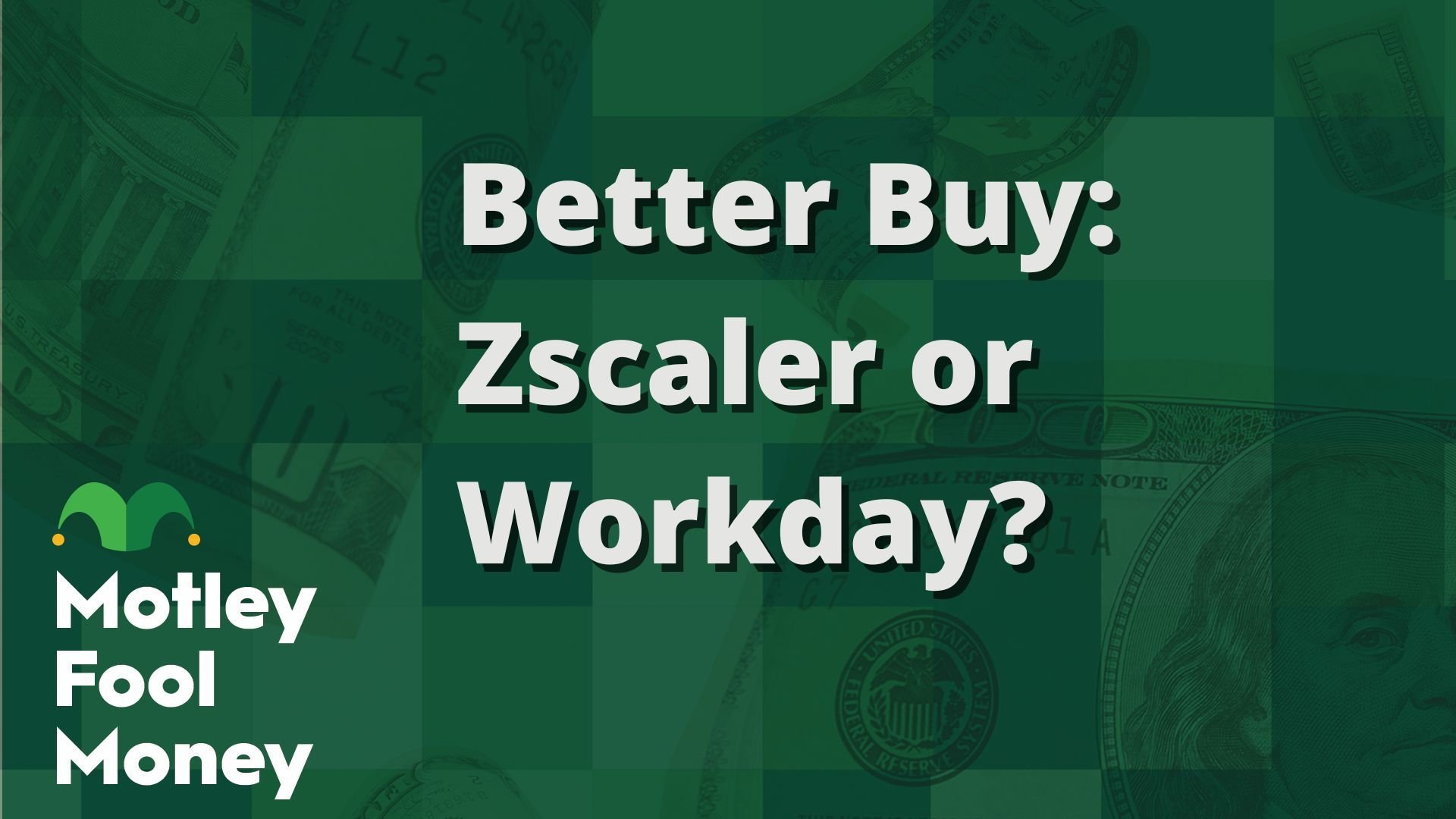When artificial intelligence (AI) stocks were all the rage earlier this year, next-generation human resources solutions developer Workday's (WDAY 7.65%) stock enjoyed a bit of a spring rally. In mid-May, however, the market's reaction to the company's fiscal 2026 first-quarter results erased much of that gain.
The problem with being involved in a hot technology is that investors tend to expect outsized results in order to justify a swollen stock price. Many felt Workday didn't deliver. Was the company something of an unfair beneficiary of the AI craze, or is it now an oversold (and underdog) play on that technology?
A victim of high expectations
If Workday weren't being tagged as an AI stock, it's likely that investors would have found its latest quarterly performance impressive. The company -- hardly a young enterprise at this point -- grew its revenue by nearly 13% year over year to $2.24 billion.

Image source: Getty Images.
Its net income on a GAAP (generally accepted accounting principles) basis did tumble to $68 million (or $0.25 per share) from the year-ago figure of $107 million. However, the picture looked quite different with extraordinary and one-time items stripped out of the equation. On a non-GAAP (adjusted) basis, Workday improved its bottom line by 28% over that span of time to $2.23 per share.
The revenue and adjusted profitability numbers topped analysts' consensus estimates; in fact, for the latter metric, Workday obliterated the consensus, as pundits were collectively anticipating only $2.01 per share. So why did the stock sell off?
The fault, dear investors, was in the company's guidance. For its current quarter, management forecast that subscription revenue -- which, by the way, comprises nearly all of its top line -- would amount to $2.16 billion. For the entirety of fiscal 2026, that line item is expected to be $8.8 billion.
If achieved, those two figures would both represent year-over-year growth of around 14%. Again, results like those would be the envy of many companies, but many companies aren't 100%-plus in on the AI revolution. The market had been expecting higher growth rates from Workday considering its full embrace of AI to enhance its business, and the collective disappointment was palpable.

NASDAQ: WDAY
Key Data Points
Irresistible discount
Investors might have been dismayed by Workday, but it seems that feeling isn't shared by the company's admirably broad (and growing) line-up of clients.
Its revenue growth in fiscal Q1 was due in no small part to product expansions for existing customers such as pharmacy giant CVS Health, enduringly popular fast-casual restaurant chain operator Chipotle, and logistics king FedEx. Not only that, it managed to rope in some serious heavy hitters as new clients, among them United Airlines and Mutual of Omaha Insurance.
And guess what? A major reason its established clients want more of their Workday solutions, and new ones are climbing on board with the company, is the way it's making use of AI.
In the conference call discussing the quarter's results, CEO Carl Eschenbach revealed that numerous clients had selected products such as Workday Illuminate, its flagship AI platform. Those eager AI adopters included payments network titan Visa and storied professional services company Aon.
One revealing number in Workday's fiscal Q1 report that I feel was somewhat buried by that "weak" guidance was AI take-up. During the period, a full 25% of client expansions involved at least one AI offering. Given how new the technology is, and the skepticism that continues to greet it from some quarters, that's an impressive rate.
Analysts who cover Workday are predicting continued growth. Collectively, they're modeling for roughly 13% growth in both fiscal 2026 and 2027. Earnings per share are predicted to rise by a meaty 20% in fiscal 2026 and 16% in the year that follows.
Those figures feel conservative to me, given the company's concentrated AI push and its clientele's clear embrace of those solutions. Meanwhile, although the stock has partially recovered from its post-earnings hit, it's still looking cheap -- its five-year forward PEG ratio is only slightly above 1.
So given its solid momentum and relatively sunken price, I think Workday stock is an absolute bargain. The stock might be out of favor, but I don't think the company's prospects have faded at all. If anything, they're glaringly bright now.





